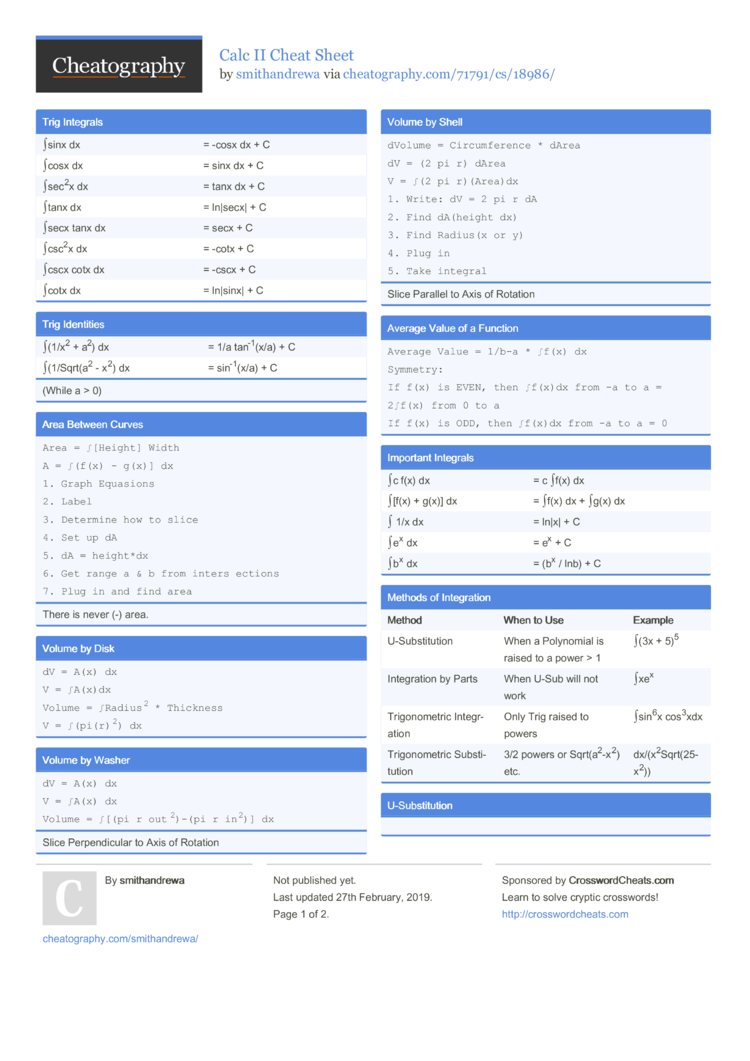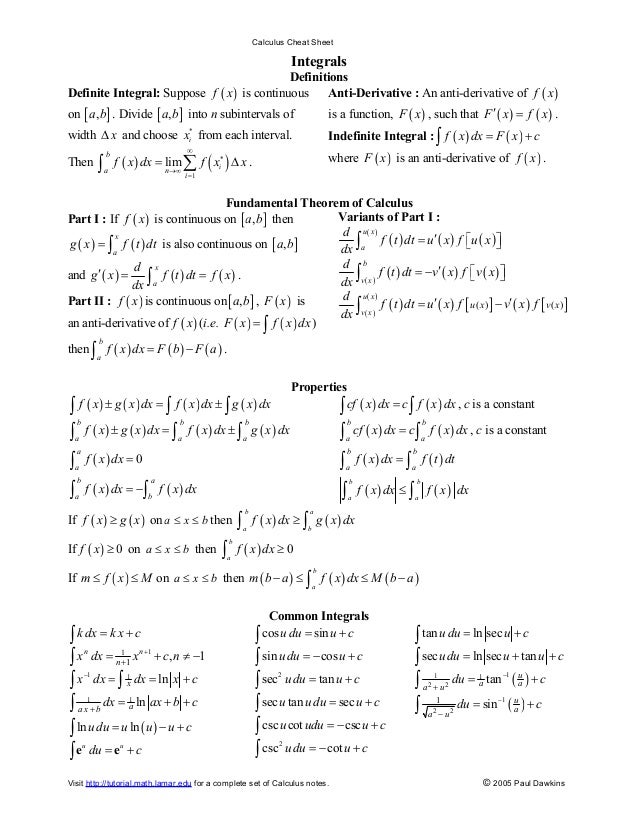Calc Cheat Sheet - X = c is an absolute maximum of f ( x ) if f ( c ) 3 f ( x ) for all x in the domain. Most of the information here is generally. Web calculus_cheat_sheet.doc absolute extrema 1. Web x!1 except we require x large and negative. X c is an absolute minimum of f x if f ( c ) £ f (. We say lim f(x) = 1 if we can x!a make f(x) arbitrarily large (and positive) by taking x sufficiently close to a (on.
Most of the information here is generally. We say lim f(x) = 1 if we can x!a make f(x) arbitrarily large (and positive) by taking x sufficiently close to a (on. Web calculus_cheat_sheet.doc absolute extrema 1. Web x!1 except we require x large and negative. X c is an absolute minimum of f x if f ( c ) £ f (. X = c is an absolute maximum of f ( x ) if f ( c ) 3 f ( x ) for all x in the domain.
Most of the information here is generally. X = c is an absolute maximum of f ( x ) if f ( c ) 3 f ( x ) for all x in the domain. We say lim f(x) = 1 if we can x!a make f(x) arbitrarily large (and positive) by taking x sufficiently close to a (on. X c is an absolute minimum of f x if f ( c ) £ f (. Web calculus_cheat_sheet.doc absolute extrema 1. Web x!1 except we require x large and negative.
Calculus Cheat Sheet Derivatives
X c is an absolute minimum of f x if f ( c ) £ f (. Most of the information here is generally. Web x!1 except we require x large and negative. Web calculus_cheat_sheet.doc absolute extrema 1. X = c is an absolute maximum of f ( x ) if f ( c ) 3 f ( x ).
Calc 3 Cheat Sheet Mathematical Analysis Space
Web x!1 except we require x large and negative. We say lim f(x) = 1 if we can x!a make f(x) arbitrarily large (and positive) by taking x sufficiently close to a (on. X = c is an absolute maximum of f ( x ) if f ( c ) 3 f ( x ) for all x in the.
Calc II Cheat Sheet by smithandrewa Download free from Cheatography
Web x!1 except we require x large and negative. X = c is an absolute maximum of f ( x ) if f ( c ) 3 f ( x ) for all x in the domain. Most of the information here is generally. X c is an absolute minimum of f x if f ( c ) £ f.
Calc BC Series Cheatsheet r/APStudents
Web calculus_cheat_sheet.doc absolute extrema 1. Most of the information here is generally. X = c is an absolute maximum of f ( x ) if f ( c ) 3 f ( x ) for all x in the domain. Web x!1 except we require x large and negative. X c is an absolute minimum of f x if f.
Calc 2 Cheatsheet
X = c is an absolute maximum of f ( x ) if f ( c ) 3 f ( x ) for all x in the domain. Web calculus_cheat_sheet.doc absolute extrema 1. Web x!1 except we require x large and negative. We say lim f(x) = 1 if we can x!a make f(x) arbitrarily large (and positive) by taking.
Calc Trig Identities Cheat Sheet Trigonometry trigonometric ratios
X = c is an absolute maximum of f ( x ) if f ( c ) 3 f ( x ) for all x in the domain. Most of the information here is generally. X c is an absolute minimum of f x if f ( c ) £ f (. We say lim f(x) = 1 if we.
Pre Calc Cheat Sheet Family Magazine
Most of the information here is generally. Web calculus_cheat_sheet.doc absolute extrema 1. X c is an absolute minimum of f x if f ( c ) £ f (. X = c is an absolute maximum of f ( x ) if f ( c ) 3 f ( x ) for all x in the domain. Web x!1 except.
Calc 2 Cheat Sheet Integral Logarithm
X = c is an absolute maximum of f ( x ) if f ( c ) 3 f ( x ) for all x in the domain. Web calculus_cheat_sheet.doc absolute extrema 1. Web x!1 except we require x large and negative. We say lim f(x) = 1 if we can x!a make f(x) arbitrarily large (and positive) by taking.
Ap Calculus Formula Sheet College Board imgdandelion
X = c is an absolute maximum of f ( x ) if f ( c ) 3 f ( x ) for all x in the domain. Most of the information here is generally. X c is an absolute minimum of f x if f ( c ) £ f (. Web calculus_cheat_sheet.doc absolute extrema 1. Web x!1 except.
X = C Is An Absolute Maximum Of F ( X ) If F ( C ) 3 F ( X ) For All X In The Domain.
Most of the information here is generally. Web calculus_cheat_sheet.doc absolute extrema 1. X c is an absolute minimum of f x if f ( c ) £ f (. We say lim f(x) = 1 if we can x!a make f(x) arbitrarily large (and positive) by taking x sufficiently close to a (on.









